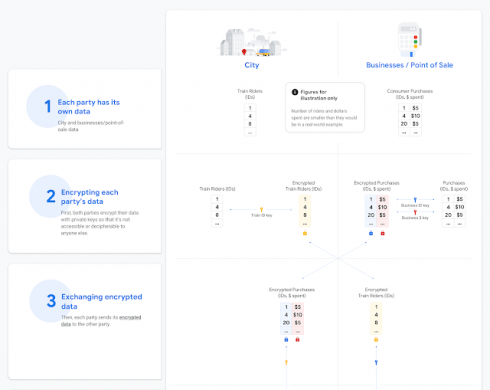
Google has announced the open-source availability of its Private Join and Compute project. Private Join and Compute is a type of secure multi-party computation designed to help organizations work with confidential data sets.
The project is a part of the company’s mission to help organizations do more with data while keeping users’ data as safe and protected as possible. Earlier this year the company also launched the password checkup extension that enables users to detect if their personal information such as username and password had been compromised.
“Many important research, business, and social questions can be answered by combining data sets from independent parties where each party holds their own information about a set of shared identifiers (e.g. email addresses), some of which are common. But when you’re working with sensitive data, how can one party gain aggregated insights about the other party’s data without either of them learning any information about individuals in the datasets? That’s the exact challenge that Private Join and Compute helps solve,” the Google team wrote in a post.
The Private Join and Compute cryptographic protocol enables independent partners to encrypt identifies and data enabling them to gain insight into datasets without having to reveal raw data.
The project leverages both private set intersection and homomorphic encryption to keep the data safe. Private set interaction enables independent parties to join datasets and discover common identifies while homomorphic encryption enables certain types of computations on the encrypted dataset. “This combination of techniques ensures that nothing but the size of the joined set and the statistics (e.g. sum) of its associated values is revealed. Individual items are strongly encrypted with random keys throughout and are not available in raw form to the other party or anyone else,” the team wrote.
In addition, the company explained it is exploring other ways to multi-party computation through collaborative machine learning and user security.
“This technology can help advance valuable research in a wide array of fields that require organizations to work together without revealing anything about individuals represented in the data,” the team wrote.






